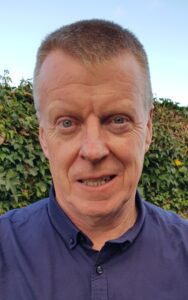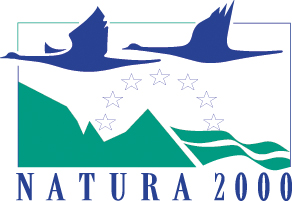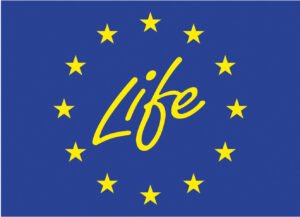Ireland has a high proportion of Europe’s remaining peatlands, including a variety of raised and blanket bogs, fens and wet and dry heath. These peatlands have immense value as carbon sinks and protect biodiversity as well as providing other ecosystem services. While the harvesting of peatlands is detrimental to the environment, restored bog can actively sequester carbon. In this way, intact bogs play in important role in combating climate change by storing excess CO2 they have removed from the atmosphere. The restoration of peatlands is considered in the Irish Climate Action Plan (2019), which sets out 183 actions targeted at tackling climate change and achieving net zero carbon energy systems while creating a resilient and sustainable country. Using peatlands as its theme, Peatlands and People is a 7-year EC-funded LIFE Integrated Project, led by Bord na Móna, that collaborates locally, regionally, nationally and internationally to generate and share solutions and knowledge for a systemic transformation to achieve this carbon neutral future through three pillars.
- A network of sites will be established to explore best practices in peatland restoration and rehabilitation and design robust methodologies to monitor and analyse carbon fluxes. Knowledge gained will allow Ireland to become a Peatlands Centre of Excellence. Over time the peatlands are expected to store more carbon and support multiple ecosystem service benefits.
- A Just Transition Accelerator programme for innovation will focus on low-carbon and circular economies to support the region economically. It intends to provide a range of services to SMEs to support the development of new sustainable products, services, enterprises and value chains.
- An immersive and inspiring People’s Discovery Attraction will be designed to introduce the importance of climate action, peatlands and behaviour change. Its long-term aim is to progress with the establishment of an educational space that cultivates curiosity and climate literacy, providing a forum for dialogue and discovery.
The project integrates actions from five sections of the Climate Action Plan – Enterprise; Agriculture, forestry and land use; Waste and the circular economy; Public sector leading by example; and Citizen engagement, community leadership and just transition. Peatlands and People uses peatlands as a model to inspire behavioural change and build capacity and economy in Ireland’s midlands, a region of transition. The project will:
- Contribute towards the long-term implementation of Ireland’s Climate Action Plan.
- Reduce greenhouse gases (GHG) and enhance carbon storage potential through best practice restoration and rehabilitation of peatlands.
- Encourage economic growth through capacity building, job creation and new value chains.
- Bring about behaviour change through a more climate-literate society and attract visitors to the region.
The management of Ireland’s diverse peatlands is highly complex, and ecological catchment areas involve numerous stakeholders. Peatlands and People seeks to work closely with those stakeholders involved in the implementation of the Climate Action Plan, as well others to connect our peatlands, policies and people. The project’s activities are conceived to ensure communities are actively part of generating solutions that can help overcome many of the challenges in implementing key sections of the Climate Action Plan.
The project partnership is made up of Bord na Móna (Project Coordinator), the Department of Housing, Local Government and Heritage (National Parks and Wildlife Service), the Environmental Protection Agency, Intrigo Ltd, and the National University of Ireland Galway. Department of Agriculture, Food and Marine has committed funds to the project as a co-financer. Peatlands and People will collaborate closely with the Midlands Regional Transition Team. It will follow developments under the European Just Transition Fund and will also connect with other Coal Regions in Transition. Synergies will be created with other funding mechanisms, while the conservation actions together with the knowledge and expertise gained will act as a catalyst for other regions across Ireland and Europe.
Peatlands and People is comprised of 22 actions related to preparing and implementing the three pillars as well as monitoring the impact and ensuring awareness of the project. The first phase (up to March 2023) mostly involves preparatory actions. The second phase (2023-25) will see the initiation of the restoration and rehabilitation work, the launch of the Accelerator programmes and the finalisation of the Attraction design. The final phase (2025-27) will ensure its successful delivery and establish the actions to allow for post-project continuation. Complementary actions will be planned to further enhance the transferability, replicability and long-term sustainability of its outcomes and to assist with the implementation of the entire Climate Action Plan. Best practice findings can be applied to more land areas, including agricultural grasslands, to further enhance the project’s potential for carbon sequestration. It is envisaged that the establishment of follow-on actions from 2027 onwards will in turn lead to:
Further work under the Centre such as the restoration and rehabilitation of more peatlands and improved monitoring and measuring of GHG sources and sinks, building capacity and influencing best practices in climate action and land use
- Expansion of the Accelerator, stimulating actions related to decarbonisation across multiple sectors and replicating it to generate further jobs and attract investment.
- Construction of the Attraction to establish the world’s largest peatland tracks and trails, a flagship venue attracting visitors seeking a unique opportunity to experience first-hand our peatlands, culture, history, storytelling, rich and diverse landscape.
The multifaceted nature of the project also contributes and creates synergies towards numerous other EU policies and strategies (e.g., Biodiversity Strategy, Habitats Directive). It strongly aligns with the European Green Deal, providing the opportunity to ensure clean energy, sustainable industry, biodiversity and circular food systems are integrated into Ireland’s policies, industries and societies. In addition to directly restoring the peatlands, Peatlands and People will provide the catalyst to build cohesive evidence-based resolutions whilst also embracing local, distributed decision making. Ultimately, the highly participatory and inclusive nature of the project will ensure co-design, co-creation and co-ownership of its outcomes. Together, this will ensure that Ireland’s midlands communities (and other regions) embrace the just transition, which will contribute to the long-term implementation of the full Climate Action Plan, to deliver a carbon neutral country which can contribute to similar issues globally.
This project has received funding from the European Union’s LIFE Programme under Grant Agreement No. LIFE19 IPC/IE/000007 (LIFE IP Peatlands and People). This output reflects only the author’s view and the Executive Agency for Small and Medium-sized Enterprises (EASME) cannot be held responsible for any use that may be made of the information contained therein.
Media and Press
News from the Project
AVEA conference Overview (October 2021)
Pillar Three of the EU LIFE Peatlands and People Project, led by Dr Christine Domegan, attended the Association of Visitor Experiences and Attractions (AVEA) virtual conference on October 18th. The theme of the conference was ‘Re-Thinking the Future: Towards Sustainable Recovery’, with David Harland, CEO Eden Project International, joining as keynote speaker. The conference focused on how the tourism industry plans to recover from the devastating effect the Covid-19 pandemic has had on travel and tourism worldwide and how sustainability will have to be at the core of the tourism industry moving forward. There were lots of key takeaways for the team as they prepare to embark on a feasibility study to assess the viability of a large-scale, sustainable visitor attraction in the Midlands in Ireland. Some of these takeaways included:
• Sustainability is important for the future – it needs to be at the core of all visitor attractions.
• The pandemic has made visitor attractions look at what they are doing and why – what their role and purpose in society is.
• The content delivered in visitor attractions needs to be well throughout – it should be fun and engaging.
• Visitor attractions need to offer and experience a new reason to visit.
• Collaborations and partnerships need to be nourished.
• There are hopes that tourism will recover to 2019 numbers by 2026.
Appointment of Head of Partnerships/Senior Researcher to Pillar Three of the EU LIFE Peatlands and People Project (November 2021)

Mr Joe McKenna
Under the leadership of Dr Christine Domegan, Pillar Three of the EU Life Peatlands and People Project has gone to a new phase of development with the appointment of Joe McKenna as Head of Partnerships/Senior Researcher. A former Director of Development at NUI Galway, Joe will spearhead approaches to potential capital funders and help establish a stand-alone Peatlands and People Foundation.
Joe previously held non-profit roles with National Council for the Blind, Berkshire Community Foundation, and Safe Start Foundation.
The appointment coincides with the commencement of extensive external stakeholder and community consultations and the appointment of consultants to deliver a comprehensive feasibility study and business plan for the new project.
“The issue of climate change weighs heavily on all sectors and it will be interesting to see how partners will collaborate with us in this unique behaviour change initiative,” says McKenna. Further information on the project is available on www.peatlandsandpeople.ie.
Funded by


Project Partners
- Bord na Móna is phasing out all harvesting of its peat for power by 2030 and is transitioning to new sustainable businesses. It sees the project as a key enabler to help it ensure a just transition for its employees and the communities in which they live.
- Under the Department of Housing, Local Government and Heritage, the National Parks and Wildlife Service manages the State’s nature conservation responsibilities under national and European law.
- The Environmental Protection Agency, a statutory agency under the auspices of the DCCAE, is at the fore of environmental protection, knowledge generation, and policing. It ensures Ireland’s environment is protected by monitoring environmental trends.
- National University of Ireland Galway leads academic research on social marketing, systems change, stakeholder engagement and analytics. It links the intersection of business and society on climate and sustainability, monitoring behaviour change.
- Intrigo Ltd, a private company, specialises in bridging the gap from science to policy, industry and society, as well as funding procurement, stakeholder engagement, science communication, project management and knowledge transfer and exploitation.
- The Department of Agriculture, Food and the Marine has a direct interest in LULUCF in Peatlands and People, as well as sustainable farming practices for grasslands and peatland fringes. They have committed funds to the project as co-financer.

